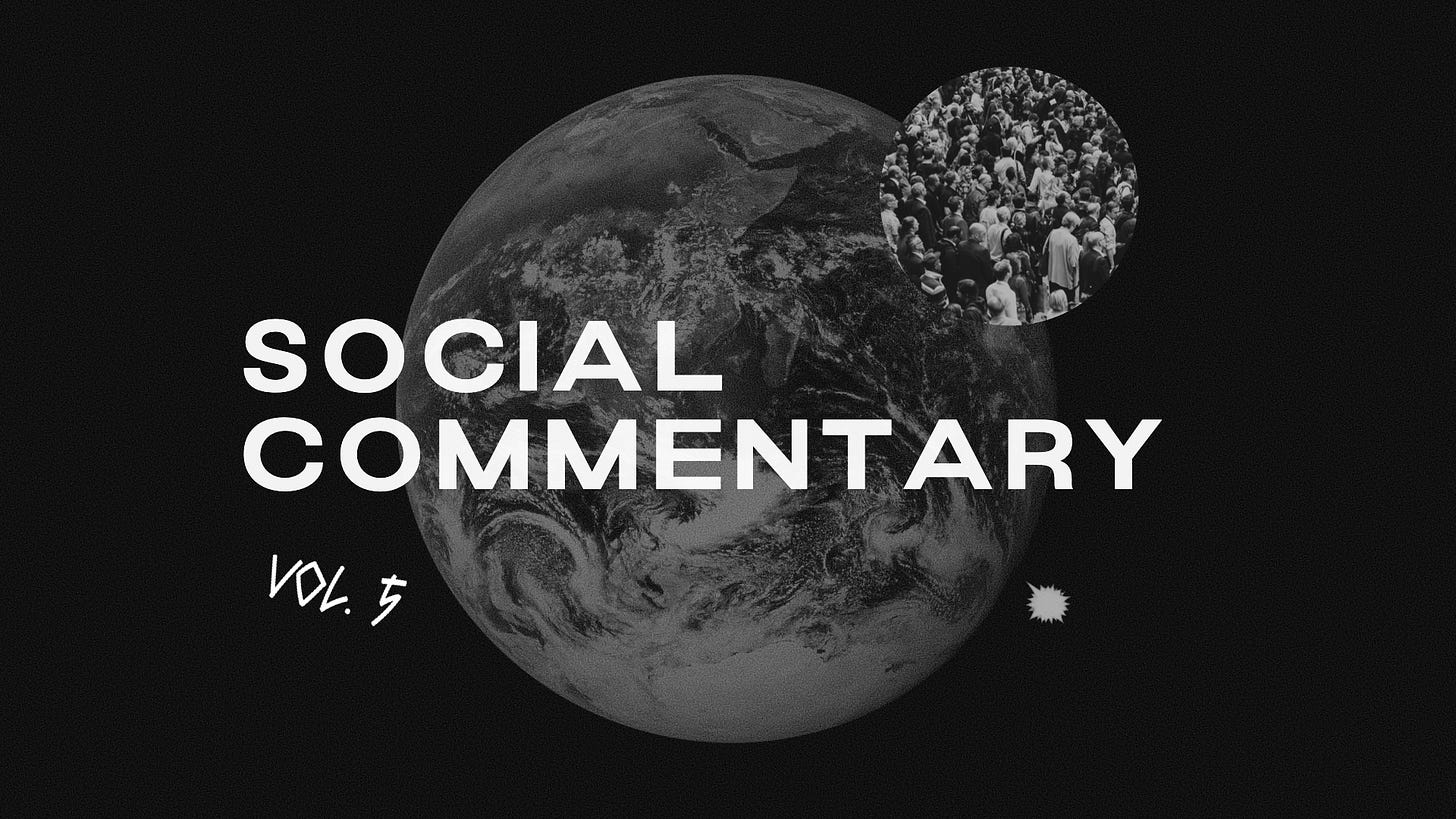SOCIAL_Commentary_Vol.5
Critical meme analyses
SOCIAL_Commentary is a reading of our memes — theorizing what they say about the zeitgeist — an expression of collective truths.
More: All Volumes
I have no proof that either of these people are 16, but let’s say they are.
What do you think about the theory: A teenager in the 1920’s looks noticeably older than a teenager in the 2020’s?
This is one of my favorite debates. (I find people will more often take the side people look exactly the same. I disagree.)
It turns out that advancements in nutrition, dentistry, skincare, medicine, living standards, and the decline of smoking have in fact scientifically slowed aging... especially the aesthetics of aging. Further, people multiple decades ago entered the workforce earlier, did the whole war thing, and adopted “adult responsibilities” much earlier, creating visual markers of stress and maturity.
Secondly, there’s an also compounding illusion here making the visual contrast between 16 year olds today vs. 16 year olds from the 1920’s stronger.
People in the past look “old” because those people have very defined styles of that era. And today, those old people often maintain their styles (hair, makeup, accessories, fashion, etc.) Therefore, we quickly equate looks from the past with “oldness.”
So, it’s not that the 16 year old from the 1920’s looks so old, but 1920’s appearances are just perceived as old to us today.
The long short here, while a teenager a century ago is the same age as a teenager today, a layering of cultural factors effectively skew our perceptions.
Therefore, and the point of this whole rant, “age” is not just shaped by “hard” biology, but also by “soft” culture.
This will never happen again. Ever.
Why?
Three likely reasons:
Today’s advertisers are the life-blood of our news ecosystem, and no news organization would ever risk zero content, which would mean zero eyeballs and therefore, zero dollars.
In our current state, there is so much change, so often, that there will always be a net-new development to broadcast.
And third, because of our role in making and reporting news, there will always be something to share. Consider UGC (user generated content, i.e. Sam’s at-home iPhone clip), the long-tail of niche interests and our recursive media feedback loop (feedback to news begets more news). Since we’re now news broadcasters ourselves, as much as the BCC, whether we like this or not, the news cycle keeps spinning and spinning and spinning and —
Never again will we experience a newsless night.
Not unless we choose to and turn off the television and put down the phone. That’s a possibility too.




